Online Master's in Nursing, Care Coordinator Degree Overview
If you are a bachelor’s-prepared nurse who wishes to positively influence the health and well-being of the community, you may want to earn your Master of Science in Nursing (MSN) as a Care Coordinator.
A nurse care coordinator is the bridge between public and population health and healthcare systems. You’ll work to improve health outcomes for those with complex diseases across the lifespan. This track embodies the mission of NMC in educating nurses to improve quality care in the community.
You’ll be educated in the knowledge and skills required to effectively coordinate the care of patients, families and communities. As a care coordinator, you’ll provide emotional and supportive care as well as information and education while assisting in the navigation of healthcare systems.
Want to learn more? Watch our most recent Virtual Information Session.


